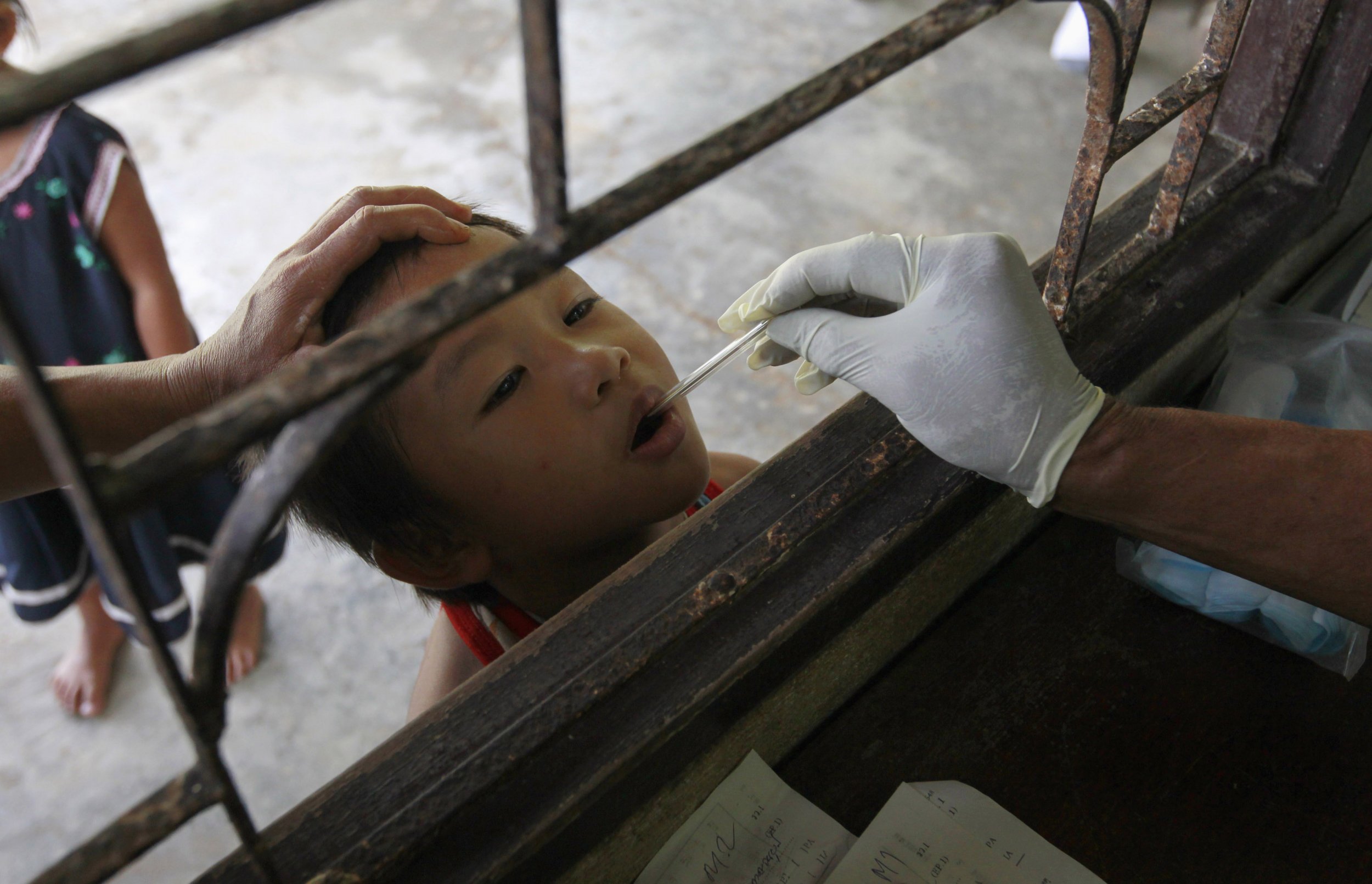
It seems straight out of The X-Files, but the news is terrifyingly real: Drug-resistant malaria-carrying parasites have been found in Cambodia-Thailand border regions, according to a study published Wednesday in The New England Journal of Medicine. This isn't the first time the parasite has resisted drugs, but experts say this recent development poses a new and serious threat to malaria control efforts.
Malaria is a parasite that is injected into a human host by mosquitos. When the parasites are resistant to treatment, it means they clear slowly from patients' bloodstreams. According to the study, parasites in regions of southern Laos, northeastern Cambodia and central Myanmar are becoming increasingly resistant to the anti-malarial drug, while the deadliest of malaria-inducing parasites, Plasmodium falciparum, has been confirmed as resistant to the drugs in Vietnam, Thailand and western and northern Cambodia. The drugs were found to be effective in Nigeria, Kenya and the Democratic Republic of the Congo, however.
In roughly the past decade, progress has been made in reducing the number of deaths from the infection. According to the World Health Organization (WHO), infection rates were reduced by 25 percent globally from 2000 to 2012, and the mortality rate decreased by 42 percent during the same period. But an estimated 600,000 individuals still die from the parasite every year, and the majority of victims are children under 5. Half the world's population is currently at risk of malaria infection.
The WHO has been recommending artemisinin combination therapies (ACTs) as the first-line malaria treatment, a measure that led to a significant decline in malaria cases since it was first proposed in the mid-1990s. Currently the most effective antimalarial drug, artemisinin is widely available throughout Southeast Asia. Yet the study found incidences of artemisinin resistance in parasites near the Cambodia-Thailand border. In 2005, another case of antimalarial drug resistance was reported in the same region.
"It may still be possible to prevent the spread of artemisinin-resistant malaria parasites across Asia and then to Africa by eliminating them, but that window of opportunity is closing fast," said Nicholas White in a press release. He is a senior author of the study and chairman of the Welcome Trust-funded Mahidol Oxford Tropical Medicine Research Unit, a professor of tropical medicine at the University of Oxford and chair of the Worldwide Antimalarial Resistance Network.
"Conventional malaria control approaches won't be enough—we will need to take more radical action and make this a global public health priority, without delay," he said.
The study analyzed 1,241 malaria patients between May 2011 and April 2013. It enrolled children and adults infected with the Plasmodium falciparum parasite at 15 trial sites across 10 different Asian and African countries. There participants underwent six days of anti-malarial treatment. Blood samples were then drawn to map the "parasite clearance half-life," the rate at which the parasite left the patient's bloodstream.
The results found that 68 percent of patients in eastern Thailand still had parasites in their blood 72 hours after treatment, compared with 0 percent of patients in Kenya. The infections that stayed long within patients' bloodstreams were found to be linked with a mutation in the Plasmodium falciparum gene, called kelch 13.
Yet on July 9 The New England Journal of Medicine published another study detailing some hope for future malaria treatment. A new anti-malarial drug is reportedly in development at pharmaceutical manufacturing giant Novartis, although it's still in trial stages and won't be available for several years.
Uncommon Knowledge
Newsweek is committed to challenging conventional wisdom and finding connections in the search for common ground.
Newsweek is committed to challenging conventional wisdom and finding connections in the search for common ground.
About the writer
Paula Mejia is a reporter and culture writer. Her work has appeared in The Guardian, Rolling Stone, The A.V. Club, Pitchfork, ... Read more
To read how Newsweek uses AI as a newsroom tool, Click here.






